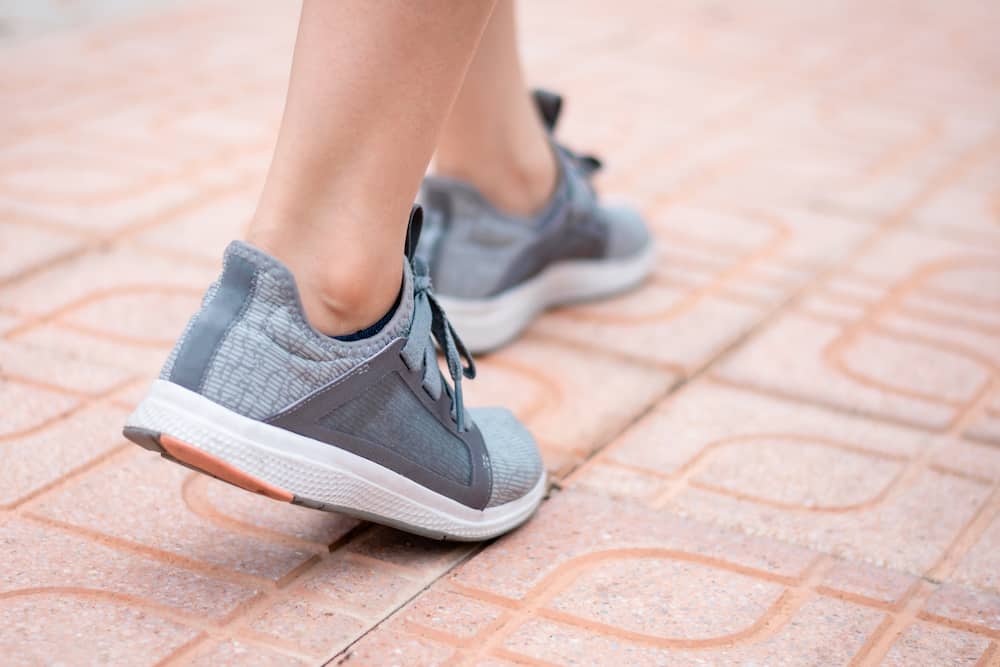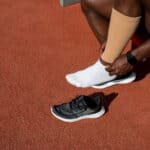These days, you would see GPS watches of different brands and styles everywhere. Each boasting of competitive features and functionalities that promise to help you progress on your fitness journey. But are you among us who wonder how do GPS watches work?
How Do GPS Watches Work?
Your GPS watch uses, well, GPS to get your exact location through triangulation, which is the process of determining the difference between the time that your device receives a signal from satellites, and the time when that signal is sent to your device.
The GPS receiver, which is integrated into your GPS watch, will then use this data to determine how far your device is from the satellites. Your GPS watch will measure a series of points to calculate metrics such as speed, pace, and distance accurately.
What About the Satellites?
So, how do satellites work in space, and how are they related to GPS? A network of 24 satellites with known positions orbits the earth in a precise path to send microwave signals to GPS receivers which then use the data for triangulation to determine your exact location.
A GPS receiver needs to detect at least four satellites to be able to calculate your longitude, latitude, and elevation. Note though that the more satellites in view, the more accurate the results are. This process happens continuously, measuring time lag and distance from the other satellites in relation to you as the GPS receiver in your device keeps track of them as you move.
What About Elevation?
An elevation measurement is a distance between the surface of the earth and a point below or above it. But because the earth’s surface is constantly changing and is full of physical anomalies, scientists tend to rely on vertical data which are abstract representations of the surface of the earth.
You can get elevation information from your GPS device. Many fitness devices or watches make use of barometric altimeters to get accurate readings and measure the pressure changes from different elevation levels when you exercise or workout so that you can get real-time elevation change data.
What About Accuracy?
There are times when you have ran the same route as your buddies, but your devices show different readings. You may be thinking, “Why did it give me a different distance?” or “How come I took way more steps today than yesterday on the same route?” Here are some possible ways that cause the discrepancy:
- Different Device Model
Among the major reasons could be because you use a different device model which uses a different process of receiving, filtering, and logging GPS signals.
Additionally, the quality of the antenna, which detects the signals provided by the satellites, and the number of tracking channels may also cause this discrepancy. Unfortunately, there can even be larger discrepancies if you traveled long distances.
Some devices also have battery-saving options which can decrease the accuracy of measurement from your GPS. Other devices also use satellite orbit predictions which provides data for a short time and can be refreshed when a data connection is used.
- The Satellite Position
As previously discussed, the more satellites used, the better the level of accuracy is. These satellites orbit Earth, and so the number of satellites in view fluctuates. Hence, this is a factor to consider when it comes to accuracy.
If you wish to record a track, then it is best to do so twice or more and then get the average of the results.
- Your Location
GPS needs a direct line of sight between the satellites and the receiver to get strong signals. However, when there is an object that blocks or reflects these signals, it takes time for them to arrive at the GPS receiver resulting in a minor time delay.
Moreover, if you are using your GPS watch in a new area for the first time, then it can take a little while to locate you compared to a previously tracked location. How well your device picks up and adapts to the current constellation on the area will result in getting your first fix sooner.
What Causes Interference?
The GPS uses radio signals in frequencies that are reserved for navigation services. And as mentioned earlier, to ensure that the GPS service continues to work smoothly, the frequency or the spectrum needs to be protected from any interference.
Again, the problem can occur when signals of the same frequency interfere with one another or if there is an object in the way. Among the objects that can affect the signal frequencies are buildings, mountain slopes, car roofs, tree covers, and even human bodies.
Your GPS device can also record a different path from the same place or route during summer compared to when it is winter.
What Are GPS Alternatives?
If GPS is to the U.S. Department of Defense, then GLONASS is to the Russian Aerospace Defense Forces.
GLONASS has satellite systems meant for high latitudes, which GPS systems cannot reach. In that sense, while it has not fully replaced GPS as this one has ground stations worldwide, GLONASS makes for an excellent alternative for signals in other parts of the world. Hence, it is highly suggested to use devices with receivers and antennas that can pick up GPS and GLONASS signals for the most accurate information.
Other alternatives include Galileo Positioning System of the European Union and BeiDou-2 of China. Both systems are expected to be in full service by 2020.
Final Thoughts
With its growing popularity, it is not surprising that one may ask “How do GPS watches work?” Well, GPS devices, in general, can be a little complicated for us to comprehend. However, regardless of what GPS device you use and what your reason is for using one, we can say that GPS helps us in a lot of ways, from tracking your progress on your fitness journey to mapping out your lost vehicle.
But let us also keep in mind that it is not perfect. Some factors can affect its accuracy, so it best not to rely too much on the information that it provides and make it our responsibility to use this information with precautions.














I can not believe that the GPS can work in this way. Wow… you elaborated the uses and the work of Gps. I gained much from reading this post about the characteristics of the GPS.
Is it as accurate no matter if I swim, run or cycle?
Thanks for a good job.
Hi, OGUNTOMI OMOLARA and thank you.
Great to hear about your benefit of this article.
About the different method of action, the accuracy is always the same.
If I can help you with anything else, or if you have any questions, don´t hesitate to contact me.
Thanks for a great article about GPS watches and GPS works. I learned a lot. I’ve never used a GPS watch before, but I love my smart phone using my location and letting me know how traffic is in my area and how long it’ll take me to get home without me even asking! I suppose that’s from me allowing Google Maps to track my location…
I may check into buying a GPS watch soon. I would want one that is waterproof for swimming, track steps when running/walking, as well as riding my bike. Do you recommend a GPS watch that will cover all those needs?
Thanks for sharing!
Devara
Hi, Devara and thank you.
To get a maximal profit of your smartphone, you need running watch. In a sense, you always have it on you when you are in your daily life when you sleep when you exercise, etc. Something you don´t do with your smartphone. So for that reason you get more precise data when you let your smartphone and running watch work together.
If I can help you with anything else, or if you have any questions, don´t hesitate to contact me.
Hi thanks for the good read, I did have a question. How well will the GPS work around mountains? I have had problems with this in the past and I need a solid alternative that I can rely on. Do you have any recommendations of anything you have used or would recommend I try? Thanks again for the good read
Hi, Kelly Elliott and thank you.
An excellent question. Myself live in a country with a lot of mountains. It usually is fine here, but there are spaces where it doesn´t work. And it is very different between countries how good the signal is.
The GPS uses radio signals in frequencies; the problem can occur when signs of the same frequency interfere with one another or if there is an object in the way. Buildings, mountain slopes, and more things can affect the signal frequencies.
So my advice is to ask your phone company first about the signal around the mountains. They usually have a good idea about it.
If I can help you with anything else, or if you have any questions, don´t hesitate to contact me.
Hi, this is a pretty cool article about GPS watches. I love to learn to stuff like this as I find it fascinating how far techno’s has come and what it is doing to transform our lives.
But I was thinking about how many brands are on this market; it is enormous! What is the most durable brand in your opinion?
Thanks, Kenny
Hi, Kenny and thank you.
Yes, there are many brands which have running watches. And it is challenging to name one as the most durable because there are so many with have excellent quality. Name like Garmin, Polar, the Apple and Nike combo, Suunto is all outstanding, and I can easily name many more I can, and has, recommended.
So the most important thing for you is to sit down and think what you want to have in your running watch. After it, you can choose and be sure that you can choose between many excellent brands.
If I can help you with anything else, or if you have any questions, don´t hesitate to contact me.
I’ve long been considering buying a GPS watch, and you’ve just made things a whole lot clearer for me. I have friends who are triathletes and swear by the Garmin watches. I see prices for these have come down lately, which is good news.
Are most of these watches compatible with an iphone, or are some more suited to Android phones? I use iphone.
Thanks for all that useful information. I’ll be bookmarking your site for more reading.
Hi, Greg Cook and thank you.
I understand your friends very well. I have used Garmin now for some time and liked it a lot! Used Polar before which was great too.
Most watches are compatible with both iPhone and Android. But for the safety is a good rule to check it always. But like I said, almost all are compatible for both systems.
If I can help you with anything else, or if you have any questions, don´t hesitate to contact me.
This is very interesting. I’m wondering what would happen if you lost the GPS signal for a while? Will it then continue from when it picks it up again? Or would that be picked up as having finished running? I’m asking because I live in Australia and believe me, we have quite a few areas where you don’t get GPS or you lose it all of a sudden, and also you mentioned there can be certain reasons when the signal gets blocked.
Hi, Petra and thank you.
Yes, it is a big problem when the GPS signal doesn´t manage to find your GPS. A GPS receiver needs to detect at least four satellites to be able to calculate your longitude, latitude, and elevation.
That means that the information about your run when your GPS lost the signal will be gone.
If I can help you with anything else, or if you have any questions, don´t hesitate to contact me.